Canada’s opposition leader is calling on Prime Minister Justin Trudeau to fire the country’s ambassador in China over comments he made regarding the case of Huawei executive Meng Wanzhou to Canadian-Chinese media outlets on Tuesday.
Speaking with Canadian Chinese-language media in the Toronto suburb of Markham on Tuesday, John McCallum said Meng, whose arrest in Canada at the request of the United States has led to a bruising diplomatic showdown between Ottawa and Beijing, has a strong case to fight extradition.
The chief financial officer of the Chinese telecom giant, has “quite good arguments on her side,” McCallum said.
“One, political involvement by comments from Donald Trump in her case. Two, there’s an extraterritorial aspect to her case, and three, there’s the issue of Iran sanctions which are involved in her case, and Canada does not sign on to these Iran sanctions,” McCallum said in his opening remarks at the press conference. “So I think she has some strong arguments that she can make before a judge.”
ListenMcCallum’s surprisingly candid remarks especially unusual since Canadian officials almost never comment on ongoing judicial cases for fear of appearing to undermine the jealously guarded judicial independence set off a firestorm in Ottawa.
“If I were Prime Minister, I would fire John McCallum,” said Conservative Leader Andrew Scheer in an interview with CBC’s Power & Politics.
“If I were Prime Minister, I would fire John McCallum,” says @AndrewScheer after @HonJohnMcCallum‘s comments that Huawei executive has ‘quite good arguments on her side’ #cdnpoli #scheer #MengWanzhou pic.twitter.com/O3YPyQBG4W
— Power & Politics (@PnPCBC) January 23, 2019
‘A country of the rule of law’
When asked to comment on McCallum’s comments on Wednesday, Prime Minister Justin Trudeau sidestepped the question sticking to his earlier message that Canada is “a country of a rule of law.”
“We will make sure that the rule of law is properly and fully followed,” Trudeau told reporters during a press conference in La Loche, Saskatchewan. “That of course includes the opportunity for her to mount a strong defence. That is part of our justice system and we are going to apply that justice system in its integrity as all Canadians and indeed people around the world expect us to do as a country.”
Tit-for-tat actions
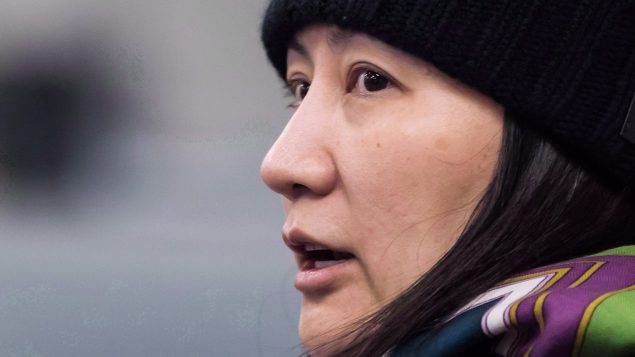
Huawei chief financial officer Meng Wanzhou has been released on bail and is living in one of her two mansions in Vancouver. (Darryl Dyck/The Canadian Press/file)
Meng, who was arrested in Vancouver in December while changing planes, is wanted in the U.S. on charges of violating U.S. sanctions against Iran.
The 46-year-old daughter of Huawei founder Ren Zhengfei was released on bail by a Canadian court to await the results of extradition proceedings.
Meng’s case has drawn international attention and triggered a diplomatic row between Canada and China.
Days after Meng’s arrest, Chinese authorities detained Michael Kovrig, who took a leave of absence from Global Affairs Canada to work as the North East Asia analyst for the non-governmental think tank International Crisis Group, and Michael Spavor, a China-based Canadian entrepreneur.
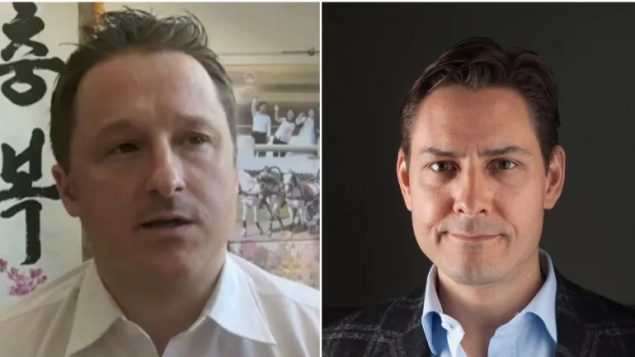
Chinese officials say Canadians Michael Kovrig, right, and Michael Spavor were arrested for undermining Chinese ‘national security,’ while Huawei executive Meng Wanzhou was arrested ‘illegally’ in Canada upon U.S. request (Associated Press/ International Crisis Group/Canadian Press)
Then on Jan. 14, a Chinese court sentenced a Canadian man to death in a sudden retrial of a drug-smuggling case. Robert Lloyd Schellenberg, 36, had appealed his original 15-year sentence.
Schellenberg death sentence was seen by many in Canada as another attempt by Beijing to apply pressure on Ottawa following Meng’s arrest.
U.S. to make formal extradition request
On Tuesday, Canada’s ambassador to the U.S. David MacNaughton, confirmed to CBC News earlier report in the Globe and Mail newspaper that U.S. officials have indicated to him they will soon file the formal request needed in the extradition case.
Ian McLeod, a spokesperson for the Justice Department of Canada, told Radio Canada International on Tuesday that Canada has not yet received the extradition request from the United States. U.S. officials have until Jan. 30 to file the formal request.
Canada then has a further 30 days to determine whether to issue an Authority to Proceed, McLeod said.
China slams Canada and the U.S.
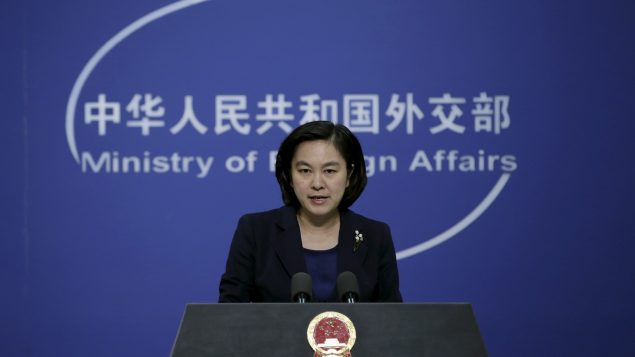
Hua Chunying, spokeswoman of China’s Foreign Ministry, speaks at a regular news conference, in Beijing, China, January 6, 2016. (Jason Lee/REUTERS)
On Tuesday, Chinese Foreign Ministry spokesperson Hua Chunying accused both Canada and the U.S. of abusing the extradition agreement in Meng’s case.
“Anyone with normal judgement can see that the Canadian side has made a serious mistake on this issue from the very beginning,” Hua said.
Meng’s case is “obviously not an ordinary judicial case,” Hua said.
“Canada and the U.S. arbitrarily abusing their bilateral extradition treaty severely infringes upon the security and legitimate rights and interests of Chinese citizens,” Hua said. “We urge the Canadian side to immediately release Ms. Meng Wanzhou and earnestly ensure her legal and legitimate rights and interests.”
China also “strongly urges” the U.S. to “immediately correct its mistake” and withdraw its arrest warrant for Meng and refrain from making a formal extradition request to the Canadian side, she added.
Asked if China would retaliate against the United States if Meng is extradited, Hua said, “China will, of course, respond to U.S. actions.” She did not elaborate.
Three options for resolution
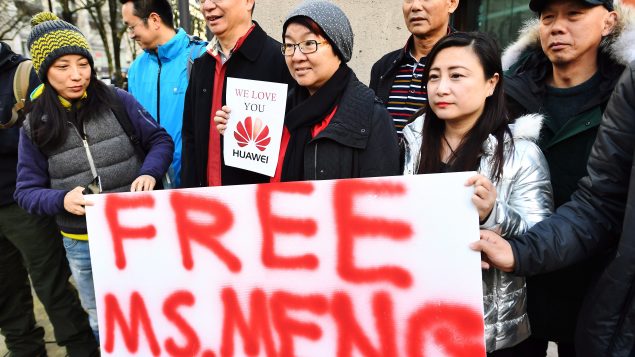
People hold a sign at a B.C. courthouse prior to the bail hearing for Meng Wanzhou, Huawei’s chief financial officer on Monday, December 10, 2018. (Jonathan Hayward/THE CANADIAN PRESS)
McCallum said he sees three options for the resolution of the Meng case.
“One, she is deported, she is extradited,” McCallum said. “That would not be a happy outcome and that would take years before it happened because she would have the right to appeal all the way up to the Supreme Court of Canada.”
The second option would be that the U.S. made some kind of a deal with China and part of that deal would be that they would no longer seek her extradition, McCallum said.
“And we would hope if the U.S. made such a deal, part of the deal would also be to release the two Canadians,” McCallum. That second option is more under the control of the United States than under the control of Canada, he added.
The third option is that Meng could be released by a Canadian court, McCallum said.
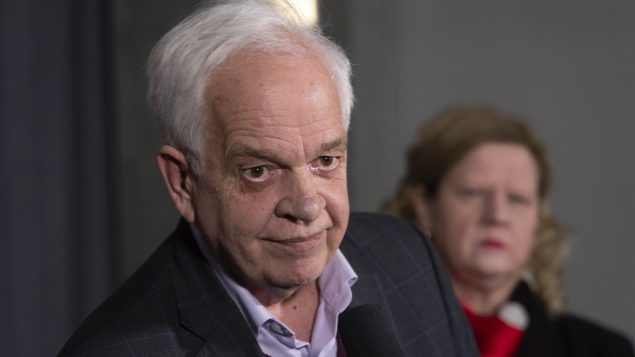






For reasons beyond our control, and for an undetermined period of time, our comment section is now closed. However, our social networks remain open to your contributions.